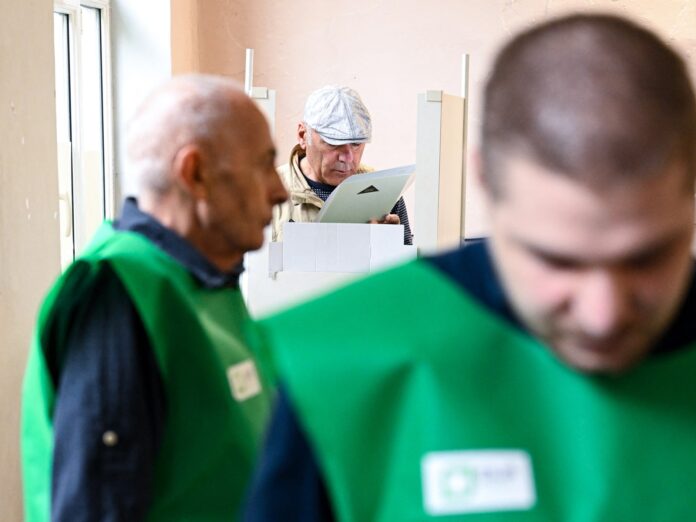Voting is currently taking place in Georgia’s parliamentary elections, which have significant implications for the country’s democracy and European aspirations.
Today’s election features an unprecedented alliance of pro-Western opposition parties challenging the ruling Georgian Dream party, criticized for limiting democracy and moving closer to Russia.
The European Union has emphasized that the outcome of the election will impact Georgia’s chances of joining the EU. While most Georgians support EU membership, talks were stalled after Georgian Dream enacted a law restricting freedom of speech in June.
Polls opened at 8am (04:00 GMT) and are scheduled to close 12 hours later, with around 3.5 million eligible voters in Georgia.
Surveys suggest that opposition parties may secure enough votes to form a coalition to replace Georgian Dream, controlled by billionaire Bidzina Ivanishvili, who founded the party and amassed his wealth in Russia.
“Tonight, victory will belong to all of Georgia,” stated pro-Western President Salome Zourabichvili, who clashed with the ruling party, after casting her vote.
Georgian Dream’s founder and former Prime Minister, Bidzina Ivanishvili, described the election as a “straightforward choice”.
Prime Minister Irakli Kobakhidze expressed confidence in Georgian Dream’s ability to secure a substantial majority in the 150-seat parliament and called for strong support.
By 10am (06:00 GMT), voter turnout stood at 9%, with Georgians selecting 150 lawmakers from 18 parties. If no party wins the required 76 seats, the president will invite the largest party to form a coalition.
‘Dragging us back’
Many voters believe this election is crucial, determining whether Georgia progresses towards EU membership or embraces authoritarianism aligning with Russia.
Georgian Dream, in power since 2012, initially pursued a liberal pro-Western agenda but has since shifted course.
Opposition to Georgian Dream centers on allegations of vote-buying and voter intimidation, which the party denies.
![Supporters of the ruling Georgian Dream party attend a rally in the center of Tbilisi, Georgia, Wednesday, Oct. 23, 2024. [AP Photo/Shakh Aivazov]](https://theusapage.com/wp-content/uploads/2024/10/1729943130_851_Georgia-participates-in-crucial-election-with-potential-impact-on-EU.jpg)




